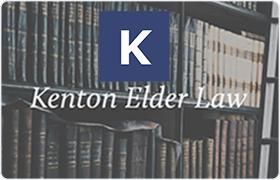Jeffersonville Wills & Probate Lawyer, Kentucky, page 2
Sponsored Law Firm
-
 x
x

Click For More Info:
-
Kenton Elder Law
713 College Rd Paris, KY 40361» view mapEstate Law Helping Generation After Generation
Kenton Elder Law works with families to ensure smooth financial transitions and long term care arrangements as older adults move into later stages of life.
800-932-7301
Includes: Estate Administration, Living Wills, Wills
Edwin H. Clark
Corporate, Estate Planning, Personal Injury, Wills & Probate
Status: In Good Standing Licensed: 27 Years
John Palmer Cornett
Wills & Probate, Civil Rights, Securities, Corporate
Status: In Good Standing Licensed: 18 Years
David E. Higdon
Wills & Probate, Workers' Compensation, Family Law, Child Support
Status: In Good Standing Licensed: 24 Years
 Carolyn Kenton Paris, KY
Carolyn Kenton Paris, KY Practice AreasExpertise
Practice AreasExpertise
